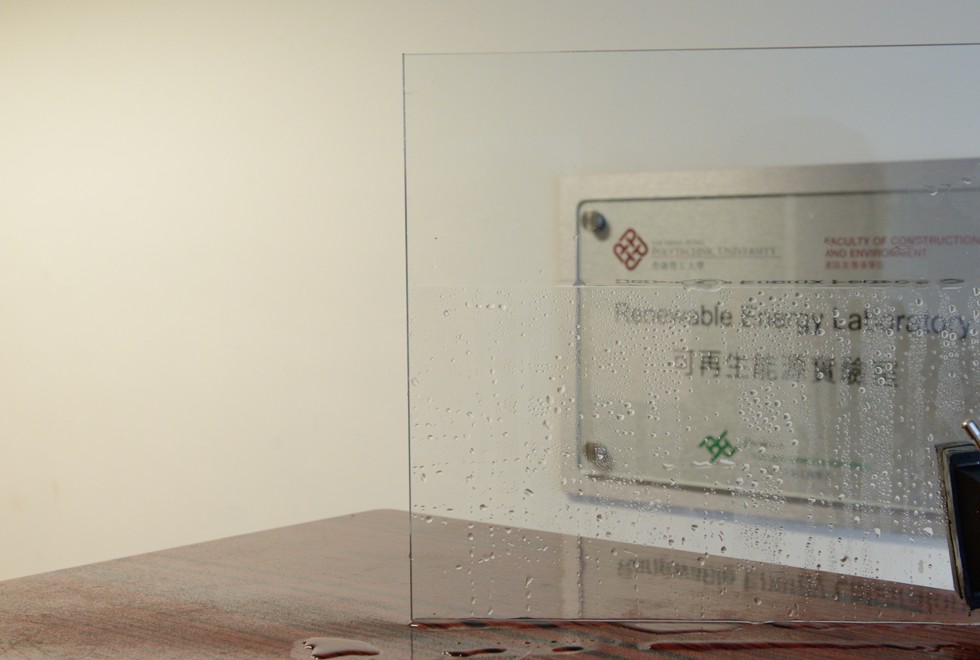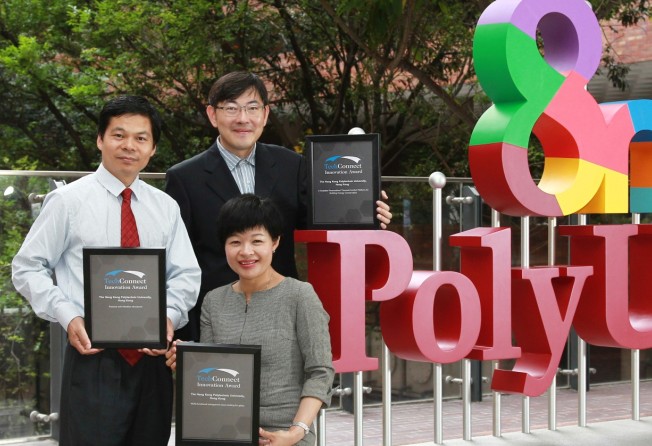
Hong Kong window-coating, heat-shielding invention shines at US awards competition
Breakthrough that can reduce heat from sunlight by 40 per cent recognised at event in Washington, DC

A Polytechnic University invention featuring nano-coated glass that can block 40 per cent of the heat from sunlight and save costs on air conditioning is one of three projects from the institution to have won an international award, in a first for Hong Kong.
The university is seeking to commercialise the product following the recognition it received at the 2017 TechConnect Global Innovation Awards in Washington, along with other winners including Nasa and the University of California.
This is the first time an institution from Hong Kong has bagged the award, established five years ago by the TechConnect World Conference, an annual event promising to “accelerate the commercialisation of innovations out of the lab and into industry”.
Dr Lin Lu – who invented the nano-coating – from PolyU’s department of building services engineering, said the use of nanotechnology helped solve a problem that arose from design trends.
“People now want more windows in buildings to allow natural light. But it makes the building very hot inside especially in the summer,” Lu said.
“This technology is a breakthrough – it can block 90 per cent of near infra-red light and 99 per cent of ultraviolet light, reducing heat by 40 per cent.
“This means big savings on the air conditioning bill, while the production cost is only HK$1 or HK$2 per square metre.”
The coating works by chemical reaction when exposed to sunlight, allowing the absorption of heat from the light, hence reducing room temperature.
This means big savings on the air conditioning bill
It also has self-cleaning properties and can break down organic pollutants, hence saving window cleaning costs.
Lu said it could be “sprayed” on the glass or printed during manufacturing, and a number of multinational companies were already in touch with her to collaborate.
While Lu is generally happy with her work at PolyU, she said: “We have almost no space to move with all the laboratory equipment. We also need more funding.”
Dr Terence Lau, director of innovation and technology development at the university, said Lu’s project was an example of how research could be developed to cope with changing and unmet needs in society.
Another PolyU project which was awarded is a personalised energy-saving thermal comfort platform by Dr Wang Dan from the department of computing. Wang’s invention allows users in centralised air-conditioned offices to adjust temperature levels for their own comfort.
The third winner was Dr Jing Xingjian from the department of mechanical engineering. Jing’s project is an anti-vibration structure – inspired by the limbs of birds and insects – which can improve engineering practices.